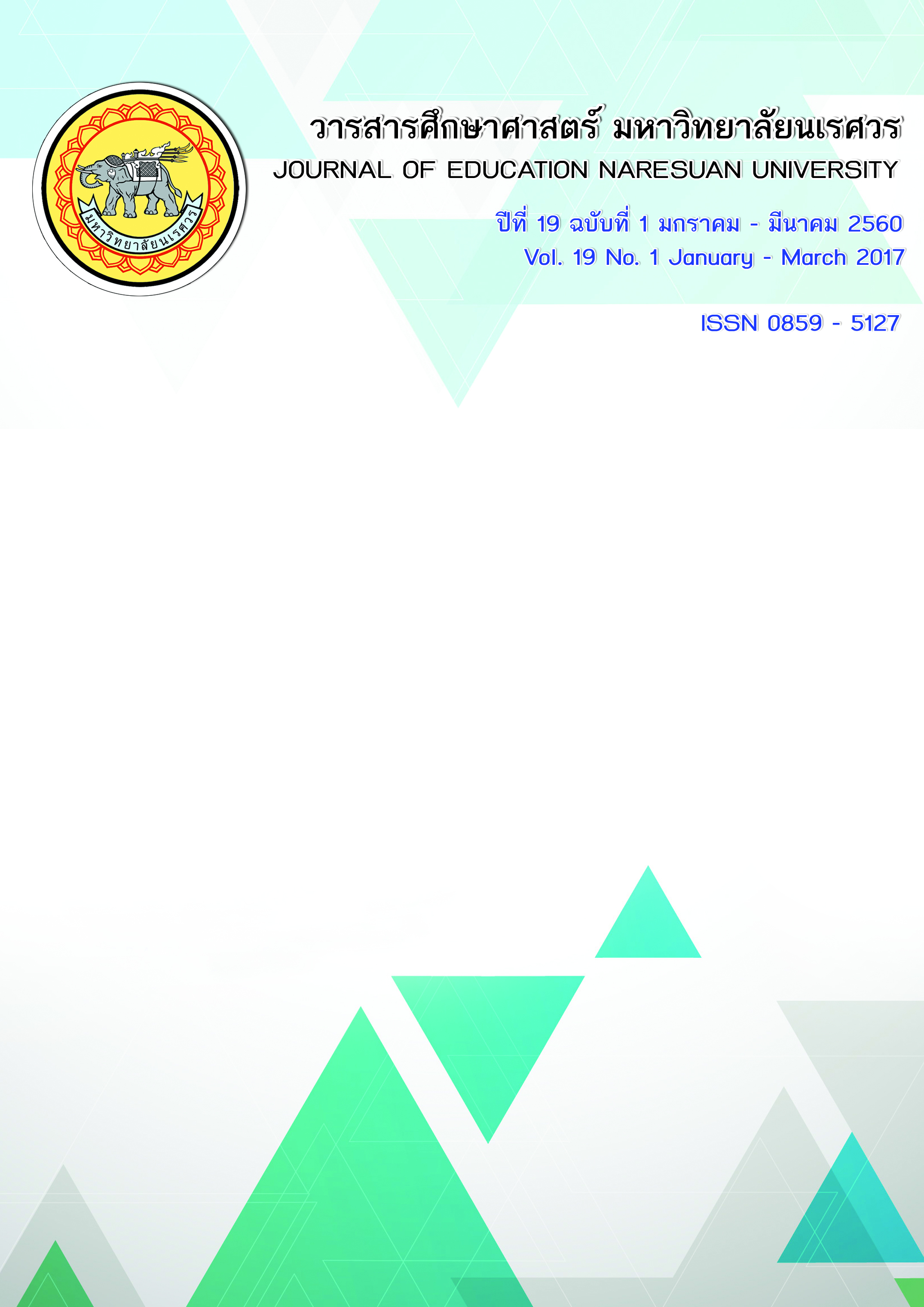ภาวะผู้นำของผู้บริหารสถานศึกษาขั้นพื้นฐานในถิ่นทุรกันดารบนเขตพื้นที่สูง
Main Article Content
Abstract
การวิจัยครั้งนี้มีวัตถุประสงค์เพื่อศึกษาภาวะผู้นำของผู้บริหารสถานศึกษาขั้นพื้นฐานในถิ่นทุรกันดารบนเขตพื้นที่สูงวิธีการดำเนินการวิจัยแบ่งออกเป็น 2 ขั้นตอน ดังนี้ ขั้นตอนที่ 1 การศึกษาประวัติชีวิตและภาวะผู้นำของผู้บริหารสถานศึกษาขั้นพื้นฐานในถิ่นทุรกันดารบนเขตพื้นที่สูงโดยการสัมภาษณ์ผู้ทรงคุณวุฒิจำนวน 4 คน ซึ่งใช้วิธีการเลือกแบบเจาะจงเฉพาะผู้บริหารสถานศึกษาขั้นพื้นฐานในถิ่นทุรกันดารบนเขตพื้นที่สูง ขั้นตอนที่ 2 การสร้างข้อสรุปเชิงทฤษฎีภาวะผู้นำของผู้บริหารสถานศึกษาขั้นพื้นฐานในถิ่นทุรกันดารบนเขตพื้นที่สูงโดยการจัดสนทนากลุ่มด้านทฤษฏีภาวะผู้นำจำนวน 9 คน ผลการวิจัย พบว่า ประวัติชีวิตและภาวะผู้นำของผู้บริหารสถานศึกษาขั้นพื้นฐานในถิ่นทุรกันดารบนเขตพื้นที่สูง สามารถสรุปโดยแบ่งเป็น 4 ด้าน ดังนี้ 1) ด้านชีวิตในวัยเด็ก กรณีศึกษาทั้ง 4 เกิดในต่างจังหวัด โดย 2 ราย มีฐานะปานกลางและ 2 รายฐานะยากจน 2) ด้านการศึกษา กรณีศึกษาทั้ง 4 สำเร็จการศึกษาในระดับอุดมศึกษา 3) ด้านการเริ่มต้นการทำงาน กรณีศึกษาทั้ง 4 เริ่มต้นชีวิตการทำงานด้วยอาชีพครูและประกอบอาชีพอย่างต่อเนื่องในเวลาต่อมาจึงเลื่อนเป็นผู้บริหารทั้ง 4 ราย 4) ด้านการเริ่มต้นสร้างครอบครัว กรณีศึกษา 3 กรณีเริ่มต้นการสร้างครอบครัวด้วยการมีคู่สมรสที่เป็นข้าราชการครูเหมือนกัน ยกเว้น 1 รายที่ยังไม่ได้สมรส ภาวะผู้นำของผู้บริหารสถานศึกษาขั้นพื้นฐานในถิ่นทุรกันดารบนเขตพื้นที่สูง ประกอบด้วย 7 ด้าน ได้แก่ 1) ด้านการใช้อิทธิพลอย่างมีอุดมการณ์ 2) ด้านการสร้างแรงบันดาลใจ
3) ด้านการกระตุ้นทางปัญญา 4) ด้านการคำนึงถึงความเป็นปัจเจกบุคคล 5) ด้านความมีมนุษยสัมพันธ์ 6) ด้านการปฏิบัติงาน และ 7) ด้านการดำรงตน
LEADERSHIP OF BASIC EDUCATION SCHOOL ADMINISTRATORS IN REMOTE HIGHLAND AREAS
This research study aimed at exploring the leadership of basic education school administrators in remote highland areas in Thailand. The research procedure was conducted in two steps: 1) the study of the biographies and life backgrounds of four administrators by interviews about biographies and life background, and 2) identification of the theoretical framework of leadership preferences by a focus group discussion with nine experts in leadership theories. The research study collected the biographies and life backgrounds with four aspects as follows 1) childhood life: the interviewees were born in the provinces and two were from poor families, the other two from middle class families, 2) educational background: they all earned Bachelors’ degree, 3) work experience: they all started as teachers and were promoted to school administrators later, and 4) present marital status: three were marriage and one was single. The theoretical framework of leadership preferences was concluded with seven components: the idealized influence, the inspirational motivation, the intellectual stimulation, the individualized consideration, human relationship, working commitment and self-maintenance.
Article Details
The owner of the article does not copy or violate any of its copyright. If any copyright infringement occurs or prosecution, in any case, the Editorial Board is not involved in all the rights to the owner of the article to be performed.


